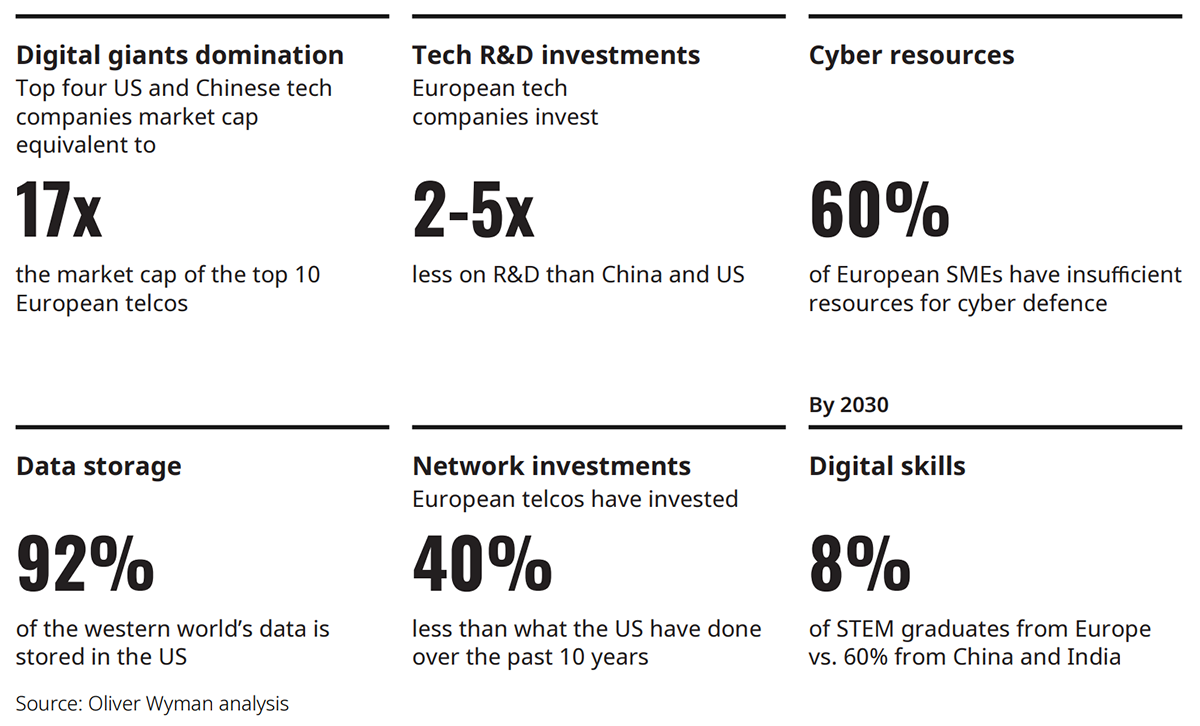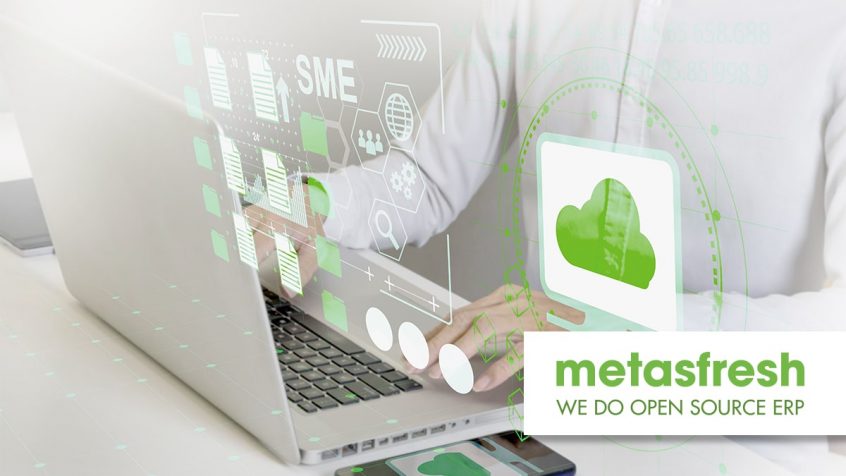Share this Post
Welcome to the third instalment of our blog series, The Secret of Open Source Software. In this post, we will discuss what digital sovereignty is, how it affects SMEs, and why it is so important. We will also explore ways that SMEs can protect their digital sovereignty and ensure that they are not at risk of being marginalised online.
SMEs are the backbone of many economies and play a vital role in the global economy. They account for over 97% of all import and export trade in Europe and are responsible for creating jobs, fostering innovation, and driving economic growth.
In order to support SMEs, it is vital to have a digital infrastructure that enables them to compete in a global marketplace. This is where digital sovereignty comes into play.
Understanding Digital Sovereignty
Digital sovereignty emerged as a new technological concept due to rapid advancements in digital technology and the globalisation of the internet.
According to the European Digital SME Alliance, digital sovereignty is the ability of a country or organisation to shape its digital transition actively. This includes setting its laws, regulations, and standards, developing and using its own technologies, and protecting its citizens‘ data.

European data sovereignty —Source: oliverwyman.com
It’s about having control over your digital infrastructure and ensuring that it meets your citizens‘ needs.
Why Does Digital Sovereignty Matter?
With individual nations and tech giants gaining massive data hosting domination worldwide, many countries have struggled to handle and regulate the data generated, shared, and consumed by their citizens. According to an Oliver Wyman study, 92% of data exchanged in the Western world is stored in data centres located in the United States.

Current situation Europe vs. USA and China —Source: oliverwyman.com
This raises several concerns about data privacy, security, and information control. Countries that do not have digital sovereignty risk being marginalised and left behind in the global economy.
Digital sovereignty is essential for SMEs because it allows them to compete in a global marketplace.
Benefits of Digital Sovereignty for SMEs
Compliance with Data Protection Regulations
It goes without saying that the reliance of companies throughout the world on proprietary solutions has never been higher. For example, pre-COVID data shows that Office 365 and G-Suite adoption was at an all-time high. After the pandemic broke, many SMEs had no option but to adopt video conferencing tools such as Zoom, Google Meet, etc. Unfortunately, many of these platforms were unprepared for the traffic deluge leading to numerous data breaches and leaks.
This undermined user data privacy, and many businesses violated GDPR and other data privacy laws.
Better Services and Customer Support
Digital sovereignty also allows SMEs to provide better services and customer support. When SMEs have control over their digital infrastructure, they can tailor their services to meet the specific needs of their customers. They can also offer more personalised service and support.
Establish Trust and Transparency
SMEs with digital sovereignty can also establish trust and transparency with their customers and staff. For example, customers are more likely to trust a company that is transparent about its data handling practices and that has control over its digital infrastructure.
Reduce Shadow IT and Facilitate New Ways of Working
Finally, digital sovereignty can help reduce Shadow IT — the use of technology (software, cloud services, and devices) within a company that is not authorised by its IT department. When SMEs have control over their digital infrastructure, they can more easily provide employees with the tools and applications to work effectively. They can also better manage and monitor employee activity to ensure that sensitive data is not being accessed or shared without authorisation.
SME Challenges
SMEs face several challenges when it comes to digital sovereignty, according to a policy note by OECD.
- Lack of Information and Awareness: One of the biggest challenges SMEs face is a lack of information and awareness about digital sovereignty. This is particularly true for SMEs that are not in the technology sector. Many SMEs are not aware of the concept of digital sovereignty or its importance.
- Skills Gaps: Another issue that SMEs face is a skills gap. Many SMEs do not have the in-house expertise to develop and implement a digital sovereignty strategy. This can make it difficult for them to take advantage of the benefits of digital sovereignty.
- Insufficient Capital: A third obstacle that SMEs face is inadequate capital. Digital sovereignty requires investment in digital infrastructure, software, personnel, and training. This can be a problem for SMEs, which often have limited budgets.
- Missing Complementary Assets: Finally, another problem that SMEs face is the lack of complementary assets. Digital sovereignty requires more than just investment in technology. It also requires complementary assets such as organisational practices.
The Role of Open Source Software
Given the challenges that SMEs face with digital sovereignty, they need all the help they can get. One way that SMEs can overcome some of these issues is by using open source software.
With complete vendor independence and freedom from licensing costs, open source software allows SMEs to make self-determined and confident decisions regarding the technologies, vendors, and partners they choose to work with. Opting for open source solutions like metasfresh opens up the full potential of digital sovereignty, assuring security, independence, and trustworthy infrastructures.
In our next and final instalment in this series, we discuss how SMEs can leverage open-source software to achieve digital transformation.
Talk to us here at metasfresh about how we can support you on the path to digital sovereignty.
metasfresh is a member of the Open Source Business (OSB) Alliance, which initiated the Sovereign Cloud Stack. Together with scientific institutions and user organisations, the OSB Alliance is committed to sustainably anchoring the central importance of open source software and open standards for a digitally sovereign society in the public consciousness, and advocates establishing open source as the standard in research and business development to the benefit of companies, governments, public authorities, and citizens alike through digital transformation.
At metasfresh, our mission is to enable each and every company to access a powerful ERP system that supports digital transformation and fuels corporate growth. Get in touch today for more information and insights.
Share this Post



